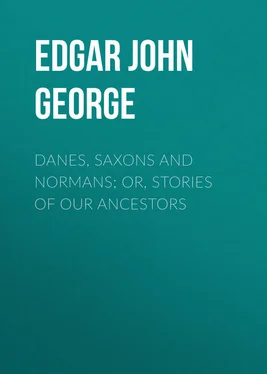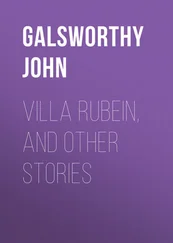John Edgar - Danes, Saxons and Normans; or, Stories of our ancestors
Здесь есть возможность читать онлайн «John Edgar - Danes, Saxons and Normans; or, Stories of our ancestors» — ознакомительный отрывок электронной книги совершенно бесплатно, а после прочтения отрывка купить полную версию. В некоторых случаях можно слушать аудио, скачать через торрент в формате fb2 и присутствует краткое содержание. Жанр: foreign_antique, foreign_prose, Историческая проза, на английском языке. Описание произведения, (предисловие) а так же отзывы посетителей доступны на портале библиотеки ЛибКат.
- Название:Danes, Saxons and Normans; or, Stories of our ancestors
- Автор:
- Жанр:
- Год:неизвестен
- ISBN:нет данных
- Рейтинг книги:5 / 5. Голосов: 1
-
Избранное:Добавить в избранное
- Отзывы:
-
Ваша оценка:
- 100
- 1
- 2
- 3
- 4
- 5
Danes, Saxons and Normans; or, Stories of our ancestors: краткое содержание, описание и аннотация
Предлагаем к чтению аннотацию, описание, краткое содержание или предисловие (зависит от того, что написал сам автор книги «Danes, Saxons and Normans; or, Stories of our ancestors»). Если вы не нашли необходимую информацию о книге — напишите в комментариях, мы постараемся отыскать её.
Danes, Saxons and Normans; or, Stories of our ancestors — читать онлайн ознакомительный отрывок
Ниже представлен текст книги, разбитый по страницам. Система сохранения места последней прочитанной страницы, позволяет с удобством читать онлайн бесплатно книгу «Danes, Saxons and Normans; or, Stories of our ancestors», без необходимости каждый раз заново искать на чём Вы остановились. Поставьте закладку, и сможете в любой момент перейти на страницу, на которой закончили чтение.
Интервал:
Закладка:
Edward deigned no reply; but his pale brow grew stern, and his withered cheek flushed with resentment.
"If," continued the earl, taking a piece of bread in his hand – "if I contributed, even indirectly, to your brother's death, may the God of Heaven grant this may choke me!"
With these words Godwin put the bread into his mouth; and, as he did so, and as the eyes of the king were bent intently on his countenance, the earl fell from his seat.
"It is the judgment of God!" muttered the courtiers with a shudder.
Tostig and Gurth, two of Godwin's sons, rushed forward, raised him in their arms, and bore him from the hall; and, five days later, the Earl of Wessex was a corpse.
VII.
MATILDA OF FLANDERS
On the memorable day on which William the Norman, during the exile of Earl Godwin, appeared as an honoured guest in the halls of Westminster, and speculated on the probability of figuring, at no distant period, as King of England, the crown worn by Edward the Confessor was not the only prize on which the young duke had set his mind. In fact, love was blended with ambition in William's heart. He had determined, somewhat in defiance of canon and precedent, to espouse Matilda of Flanders; and no one who visited Bruges and looked upon the fair and intelligent face of that graceful Flemish princess could have wondered that a warrior-duke, not yet thirty, should meditate the indiscretion of defying popes and prelates to enjoy the privilege of calling her his own.
Matilda's pedigree was such as to make her a desirable bride for the struggling son of Duke Robert. She was one of the daughters of Baldwin, Count of Flanders, by Adele, daughter of Robert, King of France; and, through an Anglo-Saxon ancestress, she had in her veins the blood of Alfred the Great. But even with a much less illustrious descent, Matilda would have been highly distinguished among the princesses of the eleventh century. Nature had gifted the daughter of Count Baldwin with beauty and talent, and careful education had rendered her one of the most attractive and captivating among the high-born maidens of whom Christendom could boast. William's ambition and his heart were naturally enough fascinated with the idea of wedding a princess of such rank and beauty; and while yet he found the coronal of Normandy sitting somewhat uneasily on his brow, he sent ambassadors to the Court of Flanders to demand Matilda's hand.
Notwithstanding William's illegitimate birth and disputed title, Count Baldwin expressed no objection to accept him as a son-in-law. Indeed, the count, feeling that William could prove a valuable friend or a formidable foe, hailed the proposal with gratification. But two obstacles immediately presented themselves – one difficulty was the repugnance of Matilda, the other was the laws of the Church.
Matilda had no stronger objections to being led to the altar than other ladies of her age. In fact, she is understood to have already dreamed of the bridal veil and the marriage vow, and to have been eager to become the spouse of a Saxon nobleman named Brihtrik, who had appeared at her father's court. Perhaps Matilda's thoughts had dwelt on Brihtrik longer than prudence warranted. In any case, when the ambassadors from Rouen presented themselves at Bruges, she set herself decidedly against the proposal of which they were the bearers.
"Why," said Baldwin, "do you object to the Count of the Normans?"
"Mention him not!" exclaimed Matilda, with a disdainful toss of her finely-shaped head. "I will not have a bastard for my husband!"
But William, who feared not man's wrath, was not to be daunted by woman's scorn. Every day he became more convinced of the necessity of uniting himself with some princess capable, by her rank and lineage, of giving dignity to his position. It appears, moreover, that the warrior-duke really entertained a strong affection for Matilda; and he seized an opportunity of manifesting the excess of his attachment by a violent kind of love-making, which has long been out of fashion.
It is related that one day, when Matilda had been at mass, and was quietly walking with her ladies of honour along the streets of Bruges on her way to the palace, to employ her hands with the embroidery work for which she was destined to become famous, and perhaps to occupy her thoughts with the fair Saxon noble who had won her young heart without giving his in return, William, arrayed as if for battle and mounted on horseback, suddenly and unexpectedly made his appearance. Alighting with a bound, he seized the princess in his strong arms, shook her, beat her, rolled her on the ground, and fearfully damaged her rich garments. After this extraordinary exhibition, he sprang into his saddle, set spurs to his horse, and rode away at full speed.
It might have been supposed that William's violent conduct would have increased Matilda's aversion to the match. The reverse, however, was the case. The princess, in fact, appears to have been overwhelmed by such a proof of affection.
"I am now convinced of the sincerity of his love," she said, "and I will offer no further objections to taking him as a husband."
Ere Matilda began to conquer the repugnance she had expressed to a union with the son of Duke Robert, William found, to his annoyance, that the Church opposed his marriage with the fair Flemish princess, on the ground of their being within the prohibited degrees of relationship. It would seem, in fact, that Adele, Countess of Flanders, had, in early youth, been betrothed to William's uncle, Richard, Duke of Normandy; so that the mother of Matilda stood in the relationship of aunt to the Norman duke, "an affinity," as has been observed, "quite near enough to account for, if not to justify the interference of the Church."
Nevertheless, William did not despair. Indeed, he had thoroughly made up his mind to be Matilda's husband and Baldwin's son-in-law, and to permit no priest to baffle him in a matrimonial scheme which ambition and love alike rendered dear to his heart. It was in vain that Pope Nicholas set himself in opposition to the marriage, and that the legitimate heirs of Rolfganger prepared to take advantage of a rupture between the son of Arlette and the See of Rome. William's perseverance and policy overcame all obstacles, and at length, with a dispensation in his hand, he claimed and received the bride he had so long wooed.
It was after his visit to the Court of Westminster, in 1052, and after the restoration of Godwin and his sons to their country, that William the Norman led Matilda of Flanders to the altar, and flattered himself that, by espousing a descendant of Alfred, he had smoothed his way to the throne from which Alfred had ruled England.
VIII.
SIWARD THE DANE
At the time when Godwin and Edward were at feud, and when the earl was browbeating the saintly prince whom he had placed on the English throne – among the Saxons and Normans who assembled around the king to discuss a grave question, or strike a great blow, might have been observed an aged warrior of gigantic stature, leaning on a two-handed sword, and regarding Saxon thane and Norman count with an expression indicative of some degree of calm contempt. His dress recalled the days of Canute and Hardicanute; his hair was white with years; his frame was bowed with time; but his spirit was such as time could neither bend nor break; and his eye still glanced at the sight of battle-axe and shield. "Gray and vast, as some image of a gone and mightier age, towered over all Siward, the son of Beorn, the great Earl of Northumberland."
Siward was one of the most remarkable men who figured in the reign of Edward the Confessor, and he had a history still more remarkable than himself. A Dane, and of noble birth, he had, at an early age, left his native shores, with an idea, perhaps, of emulating the feats of Hasting or Haveloke. Landing in the Orcades, he engaged in single combat, and put to the rout a large dragon, which had long been the terror of the rude islanders. After performing this exploit, Siward put to sea, left the Orcades behind, and, guiding his ship as a horseman does a steed, reached the northern coast of England. Having sprung ashore, and wandered into the forest in quest of adventures, he met a venerable old man, with a long white beard, who entered into conversation with him, presented him with a mystic banner, and gave him some sage advice.
Читать дальшеИнтервал:
Закладка:
Похожие книги на «Danes, Saxons and Normans; or, Stories of our ancestors»
Представляем Вашему вниманию похожие книги на «Danes, Saxons and Normans; or, Stories of our ancestors» списком для выбора. Мы отобрали схожую по названию и смыслу литературу в надежде предоставить читателям больше вариантов отыскать новые, интересные, ещё непрочитанные произведения.
Обсуждение, отзывы о книге «Danes, Saxons and Normans; or, Stories of our ancestors» и просто собственные мнения читателей. Оставьте ваши комментарии, напишите, что Вы думаете о произведении, его смысле или главных героях. Укажите что конкретно понравилось, а что нет, и почему Вы так считаете.












